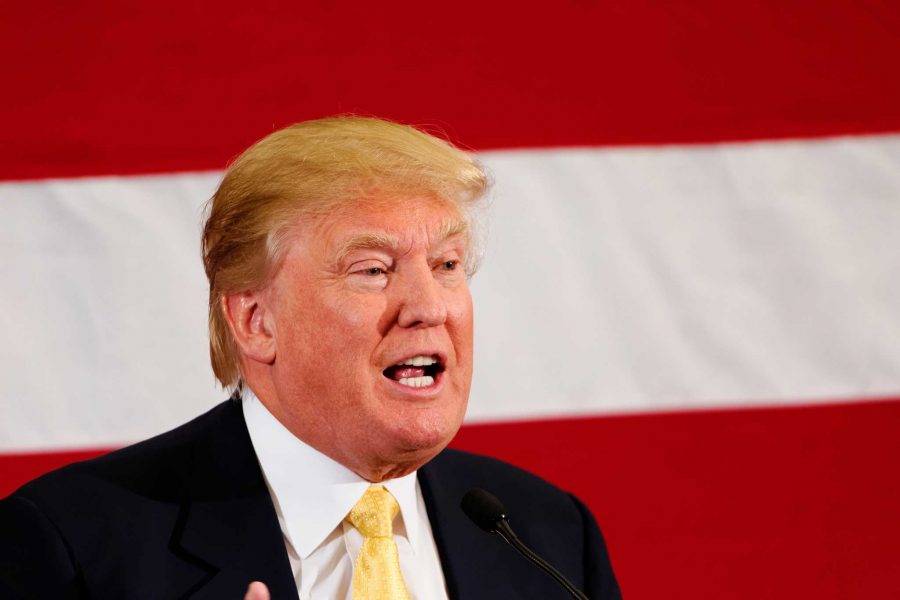By Joseph Moresky
On the campaign trail, Donald Trump, the business mogul turned unlikely Republican frontrunner, has repeatedly emphasized his commitment to strength at home and abroad. So far, this has been a winning strategy. But, he lacks an articulated grand strategy, and voters are left to look at the Donald’s rhetoric on other policy areas: immigration, trade and military intervention. His policies would actually weaken the position of the United States on the international stage.
One of Trump’s trademark policy areas is immigration. Seeking to be “strong” on the issue, Trump has called for the construction of a physical wall along the nation’s southern border. Additionally, Trump has called for an across-the-board ban on Muslim immigrants in the wake of the Syrian refugee crisis. This alienates a North American Free Trade Agreement partner and singles out a specific religious group, which is not only a hit to international credibility, but would also hurt the U.S.’ current demographic advantage relative to other countries. The influx of immigration the U.S. currently enjoys helps keep the nation’s population young and the labor market diversified.
In regards to trade, Trump has promised to “get tough” on China, particularly its alleged currency manipulation. He has even advocated for the imposition of a protective tariff to offset Beijing’s devaluation of the yuan and use of export subsidies. However, utilizing an economic relic of the 19th century would only harm both markets and antagonize Beijing, who would certainly retaliate. Combined with Trump advocating for the restructuring of the U.S.’ relationship with Japan, a stalwart East Asian ally, such actions would encourage increased aggression from China and potentially risk the emergence of a countervailing Asian alliance.
Trump’s approach towards military interventions showcases a worrying disregard toward the need to build an international coalition. Trump’s inclination towards brute force concerning non-state actors, like ISIS, neglects the reality of power in the 21st century: even large nations have trouble accomplishing goals alone. Globalization will ensure the dispersal of technological and information resources to multiple actors, reinforcing the need for the U.S. to maintain and strengthen international alliances while seeking to advance the liberal order.
Trump’s rhetorical playbook of hegemonic decline and international strong-arming has no place in modern international affairs. His policy proposals would risk America’s demographic advantages, jeopardize international economic continuity and regional stability and showcase a fundamental misunderstanding of power dynamics in the post-Cold War era. Simply put, a Trump doctrine would set America up to lose on the global stage because it would be playing the wrong game.





































































































































































































